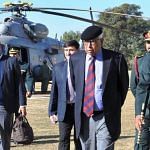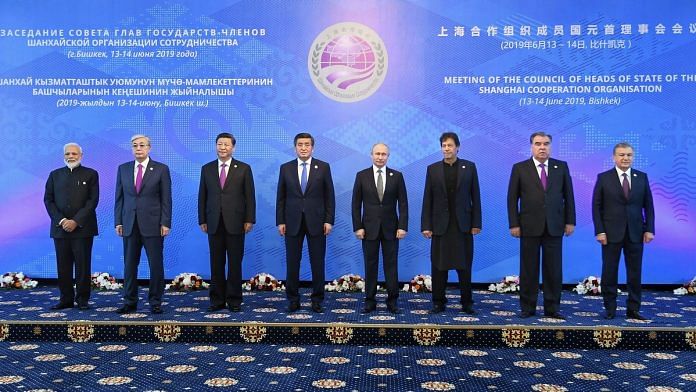The monetisation question
Duvvuri Subbarao | Former governor of the Reserve Bank of India
The Indian Express
On Finance Minister Nirmala Sitharaman’s statement on monetising the deficit by the RBI, Subbarao explains that while it won’t mean a free pass for the government, it will mean a heavy subsidy. Resistance to it comes from the notion that “there just aren’t enough savings in the economy to finance government borrowing of such a large size.” Also, he says, “If RBI is seen as losing control over monetary policy, it will raise concerns about inflation. That can be a more serious problem than it seems.” Subbarao argues that we are not yet at the point where monetising of deficits is required, because right now the government “is able to borrow at around the same rate as inflation, implying a real rate (at current inflation) of 0 per cent.”

A moment to trust the teacher
Krishna Kumar | Former director of the National Council of Educational Research and Training
The Hindu
Criticising the Tamil Nadu government’s decision to hold the Class 10 board exams in the middle of a pandemic, the author says it shows an “expression of mindset and not reason.” Poking holes at an already weak education system where the result of the Class 10 board exam, which have no substance and ask ridiculous questions that test no real aptitude but determines what one will study further, he explains that in Tamil Nadu, where the pass percentage last year was above 95 per cent, the government could consider making the exam voluntary when schools reopen. He concludes that it is “time to start trusting the teacher and nurture the growth of a school-based system of evaluation.”

When US threatened to leave WHO
NN Vohra | Former governor, Jammu and Kashmir
Hindustan Times
In light of US President Donald Trump suspending funding to the World Health Organization, Vohra recalls May 1982’s annual session of the World Health Assembly (WHA). Then, too, the US threatened to leave and end its financial support on account of an Israel-Palestine resolution under discussion. The pandemonium that ensued from supporters of both sides of the conflict was “unprecedented”, says Vohra. After several rounds of negotiations with the Arabs, African, Israeli, American and others concerned, Vohra, then in the ministry of health and chair of one commission at the assembly, managed to redo the draft resolution and in effect, save the WHO.

Can SC save the walking migrants? The solution to their plight may not lie with the judiciary, but in labour reforms
Arghya Sengupta | Research director, Vidhi Centre for Legal Policy
The Times of India
On the public disappointment with the Supreme Court on the issue of labourers and their rights during the lockdown, Sengupta points out the limitations of the court. Arguing that judicial intervention will do little to change things in the long term, he notes that “The plight of migrants can only be alleviated by prohibiting eviction, providing safe transport, and getting the economy up and running.” Stating that these are all core functions of the union and state governments, he ends by saying that, “If our collective empathy for migrant labour is to have meaning, we must have a national debate on labour reform. Let us stop looking towards our courts to be our saviours every time.”
Missing demand
Madan Sabnavis | Chief Economist, CARE Ratings
The Financial Express
The author notes that the Rs 20 lakh crore Covid package addresses needs from below, including those of SMEs, but does not alleviate the troubles of industry, “which is the key driver of the economy.” However, the package has a “large role for RBI, with 40% of the amount mentioned being provided as liquidity by the central bank”. According to the author, this is an indirect way to support the economy. The package also addresses the larger issue of reforms such as agriculture, mining, FDI, the power sector, but it does not provide any expected demand-side stimulus, writes Sabnavis.


The domestic motivations of Beijing’s LAC aggression
Harsh V. Pant | Professor of international relations at King’s College, London
Kartik Bommakanti | Associate fellow, Observer Research Foundation
Mint
China’s move to increase defence expenditure by 6.6% demonstrates the importance it gives to defence preparedness, note the authors. It is also a natural consequence of what China sees as “necessary measures to press its claims against its immediate neighbours”. China’s territorial claims along the line of actual control (LAC) are now being brought into contention by the People’s Liberation Army’s intrusions. The present situation between India and China is a reminder that China is not only a formidable military foe under normal circumstances, but remains “doggedly aggressive even in the midst of a health catastrophe.”
How about giving the middle class a break?
R Srinivasan | Columnist
Hindu Business Line
The author argues that the 20-lakh crore package number is just “smoke and mirrors” and, referring to the predicted crash in GDP, says that the economy has “dived off a cliff without a parachute”. While attempts have been made to address the plights of migrant workers and agriculture sector, the middle class has missed out on any kind of support. Calling the middle class the “heart of India’s consumption-led growth story”,the author points out that they need policy attention. The policymakers have caught in some “socialist time-warp” and if this continues, the return of a “higher growth trajectory” can be written off, author notes.

Chinese exceptionalism
Jaimini Bhagwati | Former diplomat & World Bank finance professional
Business Standard
Stating that per capita incomes in Western countries were way ahead of that in China in 2019 considering the purchasing power parity, the author says that China has made highly impressive technological progress. But given the lack of Chinese accountability for coronavirus, the rest of the world should be “looking for ways to reduce the systemic and perennial deficits in the trade in goods with China”. Bhagwati points out that the world has been accepting of Chinese exceptionalism instead of resisting it. The world needs to link economic interaction with China to “greater openness about that country’s political and medical research establishments” excluding its exceptions.




